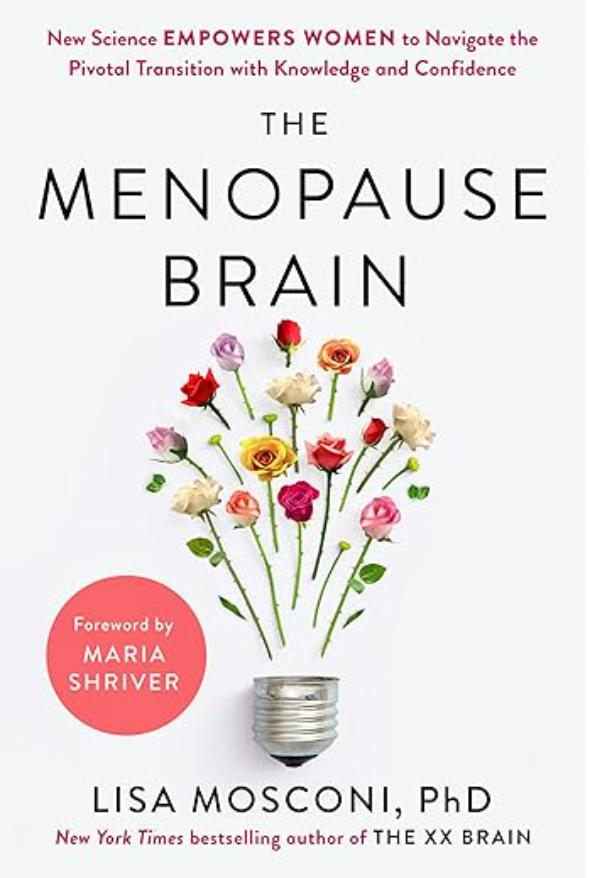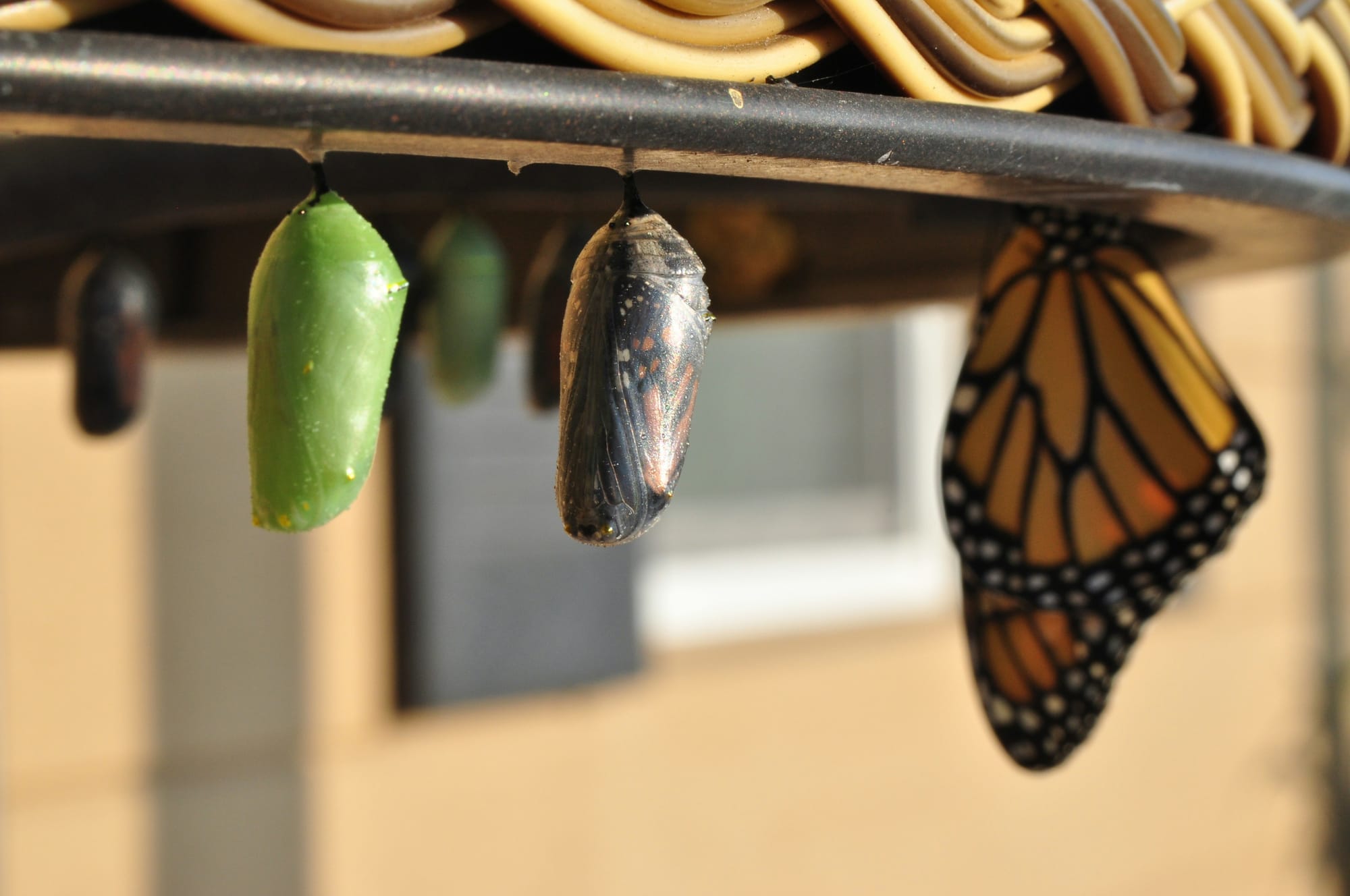Possibility

I thought I was going to start this blog with a post about menopause symptoms, because the challenge, disorientation, and severity of the symptoms I have been experiencing are what have driven me to start this blog, undertake a Menopause Yoga training, and even begin work on a menopause memoir. However, I had a moment of insight in my Menopause Yoga class this morning that has inspired me to start with a more overt, consciously positive orientation: the possibilities inherent in the menopause transition.
Up until the last few weeks, perimenopause has been a time of resistance for me. I avoided thinking about—or educating myself about—menopause when I was still in my 30s and 40s because I was not looking forward to this transition, was, in fact, dreading it. Unfortunately, a lot of the reasons I have been so apprehensive about this experience emerge from two primary sources:
The extraordinary absence—until the last few years—of any reliable research or evidence-based information about women’s and people’s experiences with menopause. Because women have finally advanced in the health professions and sciences to the point where they are able to command funding and initiate research projects, we are now seeing an explosion of research into the menopause.
A corollary to this is that we have also lacked much anecdotal description about menopause as well, because women have not tended to write or speak publicly about their experiences of menopause until recently, and many do not even discuss it with friends.
A second reason for my apprehension and resistance to menopause has been sociocultural messaging around this utterly normal, important, and unavoidable bio-psycho-social-spiritual event that is every bit as momentous and transformative as puberty or pregnancy.
Culturally, women and their experiences are generally devalued. The association of menstruation, pregnancy, and menopause with blood and with the intimations of being taken over by processes outside of conscious control have been frightening and intimidating, lending themselves to superstition and mystification in lieu of scientific research and evidence-based investigation.
Additionally, in patriarchal cultures women have been valued essentially for their reproductive capacities. In the menopause, as the ability to reproduce winds down and ends, there is cultural confusion about what a woman is for, what her value is. This culturally imposed and oppressive view is internalized by many women—even women who are strong and vocal advocates for themselves and others—and makes it difficult to regard menopause from a positive perspective.
It does not help that the aging process generally is railed against by both men and women though it is as inevitable as the mortality it hints at. There are currently no non-indigenous, mainstream American societal rites of passage into becoming an elder and no description or comprehension of what it would even mean to become an elder.
So, for many reasons I was not looking forward to menopause, I failed to prepare myself for it, and yet I imagined that somehow I would move through it easily. I was healthy, exercised and did yoga, ate pretty well, didn’t smoke, drank little, and was socially connected.
I expected it to be an adjustment like getting my period was an adjustment—learning how to read the signs and be prepared for when I would bleed each month and figuring out how to use tampons. I did not at all realize or appreciate that menopause—like menstruation—is about much more than blood flow; it is about a fundamental rewiring of the body and brain. As menstruation is embedded in the years-long, haywire process known as puberty, menopause, the period at the end of all periods, is nestled quietly within the process of what is called the menopause transition or “the menopause.”
I will say this again, because it was this scientifically validated fact that finally woke me up to the possibilities of menopause this morning:
The menopause transition involves a fundamental rewiring of the body and brain.
I have been reading and listening to podcasts, learning a lot about the effects the dramatic hormonal fluctuations of menopause have on the body and mind. But what I have not been as aware of are the potential reasons behind what is happening in the body and brain. Is there an inherent wisdom in the body amidst all this apparent chaos? Are we being prepared for some new phase of life, just as we are in puberty or pregnancy? It seems likely, doesn’t it?
Scientifically, we don’t have loads of proof for this idea yet. Evolutionary theories that hold reproduction and the passing on of genetic material as the central motive for human life, would likely view menopause as a purposeless artefact resulting from modern technological advances that have unnaturally extended our life expectancies.
However, neuroscientist Dr. Lisa Mosconi, author of The Menopause Brain, asks: “What if evolution isn’t as misogynistic as those who conceived of it? Perhaps nature doesn’t measure a woman’s worth based on her ability to crank out as many children as humanly possible.” (p.103)
She also writes, “…at various crossroads in a woman’s life, brain-hormone events promote social and cognitive upgrades or adaptive advantages. Whether preparing us for adulthood after puberty, promoting nurturing abilities after pregnancy, or honing us for unique societal roles after menopause, our neuroendocrine networks seem to have a plan in mind.” (p.107)

The menopause is certainly a “brain-hormone event!” Forgetfulness, brain fog, distraction and scatteredness; dysregulated temperatures resulting in hot flashes or freezing cold or both; long-forgotten memories popping up unexpectedly and perhaps unwelcomely; mood swings, anxiety, depression, and panic; irregular and unpredictable periods; heightened sensitivity to sounds, sights, smells, and sensations, including the presence of others—these are a few of the symptoms of menopause and they are all driven by the effects of hormones—especially estrogen and progesterone—on the brain and the brain’s messaging to the body.
These symptoms probably sound terrible and scary. It is no wonder many women in perimenopause fear they are going crazy or suffering from irreversible cognitive decline.
But what my yoga teacher, Petra Coveney, creator of Menopause Yoga, suggested this morning is that Mosconi’s research indicates that the brain may actually be under renovation during the menopause transition. Perhaps you can imagine a renovation in your home, or perhaps you have lived through one. Let’s say the kitchen—one of the primary nerve centers of most homes—is being renovated. It’s being stripped down to the studs. Wires are hanging out of the walls, the gas is turned off, water is down to a cold trickle. A coating of dust is constantly being stirred up and then settling into every room in the house and everyone’s lungs and sinuses. There’s no chance of preparing a meal, much less gathering or eating there. The contractor has promised it will take six months, but it takes almost twelve. What was embarked on with excitement and enthusiasm has now become a grueling, chaotic, messy endurance test through the unanticipated, expensive, and unpleasant.
But although you can’t know exactly when, and you have lost hope that it will ever happen, at some point the contractors will place the last tile, slide the new refrigerator into place, and tear the plastic sheeting down to reveal a beautiful, spacious, and advantageously-applianced new room that will not only enable you to do new things you’ve been waiting and wanting to do, but will enhance your pleasure in doing them.
Perhaps Mosconi’s theory is correct. Perhaps this is what it is all for. The rewiring of our brains is a decluttering and pruning process that eliminates all the information and processes we no longer need so that there is space for new neurological connections to be made, uncluttered by the past. And maybe this clearing out can be enhanced if we consciously undertake the task of letting go of outdated beliefs, old resentments and hurts, and relationships and activities that no longer nourish us or allow us to thrive.
Perhaps all the physical changes that accompany the menopause are actually there to inspire us to train—like athletes preparing for a marathon or Olympic trial—for a new leg of life’s journey. As estrogen declines, we lose bone density and muscle mass, often gain weight (specifically, visceral fat) around our bellies, and are at increased risk of cardiovascular disease, osteoporosis, dementia, and diabetes. As progesterone declines we lose our natural calming hormone, putting us at risk of insomnia and sleep disruption, depression, anxiety, and panic attacks.
But if we learn and implement new habits of self-care, we can emerge from perimenopause into postmenopause stronger, healthier, and more emotionally resilient and powerful than we have ever been. Strength and resistance training and high intensity interval training (HIIT) are specifically recommended for women in the menopausal transition. These activities can restore lost muscle mass and build more, help us to become more metabolically active and resilient, and, for some of us, offer the opportunity to learn new ways of exercising, thereby building new brain connections.
We are also encouraged to look at how we prepare for sleep, what we eat, drink, and take into our bodies and minds on a daily basis, and reach out for social or professional therapeutic support. Changes we make to nurture sleep, reduce hot flashes and mood swings, and promote groundedness and calm in our bodies and minds, cultivate greater health and create a new sense of stability and strength that sets us up for new ventures and adventures.
So although perimenopause is still feeling like a slog, I have started to open up to the idea that this transition could be not only terrible, but transformative. And that thought brings to mind a quote from a Chinese philosopher, Chuang Tzu: “Just when the caterpillar thought the world was over, it became a butterfly.”

Please share if you have had any insights about the possibilities you have felt during the menopause transition!
You can email me at beingthechange.us@gmail.com.
If you do contact me, please include the following:
**Your question, comment, or correction
**If it is okay for me to place your question/comment/correction on the "Community" page
**What name and/or location (e.g., city, state) you would like me to use to identify you.